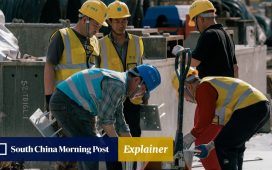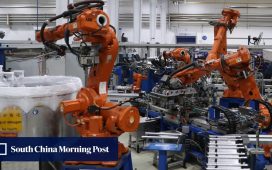Rumayyan is a financier who wears many keffiyeh, as the Middle East headdress is called: he is the governor of the US$700 billion Public Investment Fund (PIF) and chairs Saudi Aramco, as well as the Newcastle United Football Club, in addition to holding board seats at SoftBank Group and Reliance Industries.
The gong strike was a ritual that the HKEX would have arranged for Rumayyan four years earlier, almost to the day, when Aramco was planning its initial public offering. Instead, the Saudi state oil company raised US$25.6 billion on the Tadawul exchange in Riyadh, in what still stands as the largest fundraising exercise in global finance.
Last week, hot on the heels of kicking off the FII Priority, Hong Kong and Saudi Arabia signed a memorandum of understanding to negotiate an investment promotion and protection agreement.
I worry about the ability of people to adjust to new technology
The FII Institute, whose agenda is “Impact on Humanity”, extends beyond Saudi-China or Saudi-Hong Kong relations. Its Board of Changemakers, the highlight and set piece of the two-day conference, addressed the question of whether innovation and collective action can uncover opportunities to advance societal well-being and shared prosperity.
“I worry about the ability of people to adjust to new technology,” said Hang Lung Properties chairman Ronnie Chan, in a panel discussion moderated by Professor Tony Chan, the president of the King Abdullah University of Science and Technology, and a trustee of the FII Institute.
AI was by far the most-talked-about topic at the conference, as the world grapples with the endless possibilities of AI-powered deep fakes and the astounding feats of large language systems such as ChatGPT.
Sustainability is the defining challenge in our century, but also the biggest trillion-dollar opportunity
Green technology, environmental, social, and governance and climate change were also hot concerns. Technology that holds the key to solving the climate crisis needs more government support and funding from diverse players in the private sector to ensure its successful commercialisation, attendees said.
“Sustainability is the defining challenge in our century, but also the biggest trillion-dollar opportunity,” said AlphaTrio Capital founding managing partner Poman Lo.
“The only way we can drive this transition is by leveraging technology, which … can turn [climate] risks into opportunities.”
60-Second Catch-up
Deep dives

Meet 5 Hongkongers blazing a Middle East trail in areas from jewels to energy
-
Hong Kong businessmen are making a splash in the desert with innovative ideas in a variety of sectors
-
As the city eyes new opportunities in the Middle East, the Post speaks to Hongkongers who have already made their mark in the region
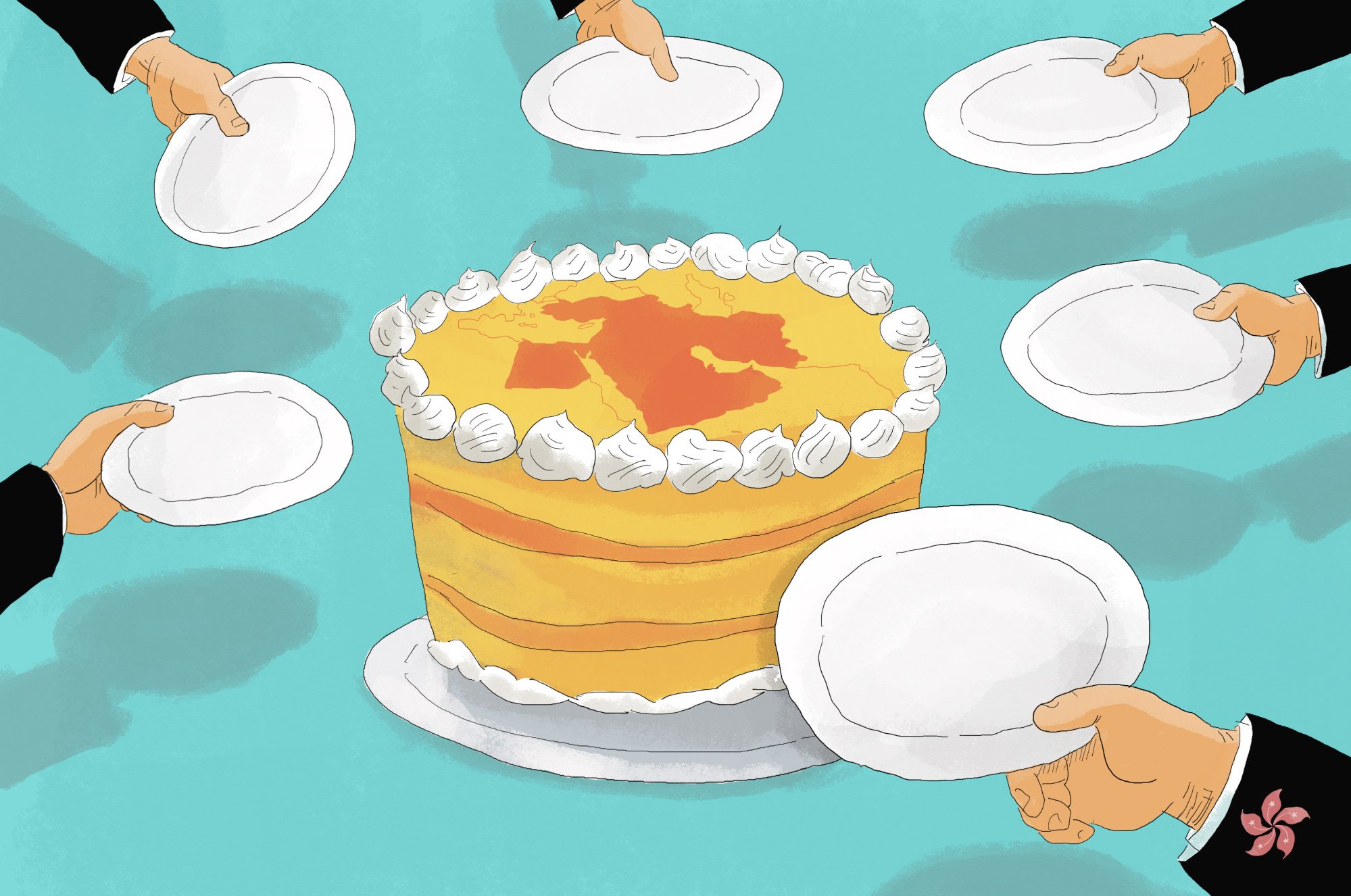
What can Hong Kong gain in its Middle East forays?
-
Governments across the world are racing to get a slice of the pie as Gulf states plough billions of dollars of oil profits into economic reforms
-
After 10 months of engagement by the Hong Kong government, results are slowly trickling in for local companies
A plastic “ghost”, a cutlery “maniac” and an old clothes “imp” are among a cast of characters Arthur Lam feels fondly about when he talks about his mobile app to gamify adopting a low-carbon lifestyle.

China Inc hops into Middle East growth as region veers away from oil
-
The recent wave of Chinese companies expanding in the Middle East share a common thread: their focus on technology and innovation
-
Their expansion comes at a time when several Middle Eastern countries are seeking to diversify their oil-dependent economies.
One late-October morning in one of the most expensive hotels in Saudi Arabia’s capital Riyadh, a group of Chinese start-up entrepreneurs and mainland financiers was reminded of the importance of preparedness and proactive backup plans by Ray Dalio, the founder of the world’s biggest hedge fund firm, Bridgewater Associates.

Hong Kong’s market, hub status in focus as city seeks to boost Middle East ties
-
Collaboration is the bedrock of innovation as the world works towards a sustainable future, FII Institute CEO Richard Attias says
-
The PIF will look to open new offices in mainland China and India as part of its expansion plans, Saudi wealth fund’s governor Yasir Al-Rumayyan says
Hong Kong is ideally placed to serve as a bridge between China and the Middle East, with the city’s capital market and government’s focus on tech and innovation acting as catalysts to help the world transition towards a sustainable future, according to speakers at the FII’s first Asia conference.
Participants also discussed the ethics and regulations surrounding artificial intelligence (AI), advanced technology and the future of sustainability, some of the biggest concerns facing humanity.
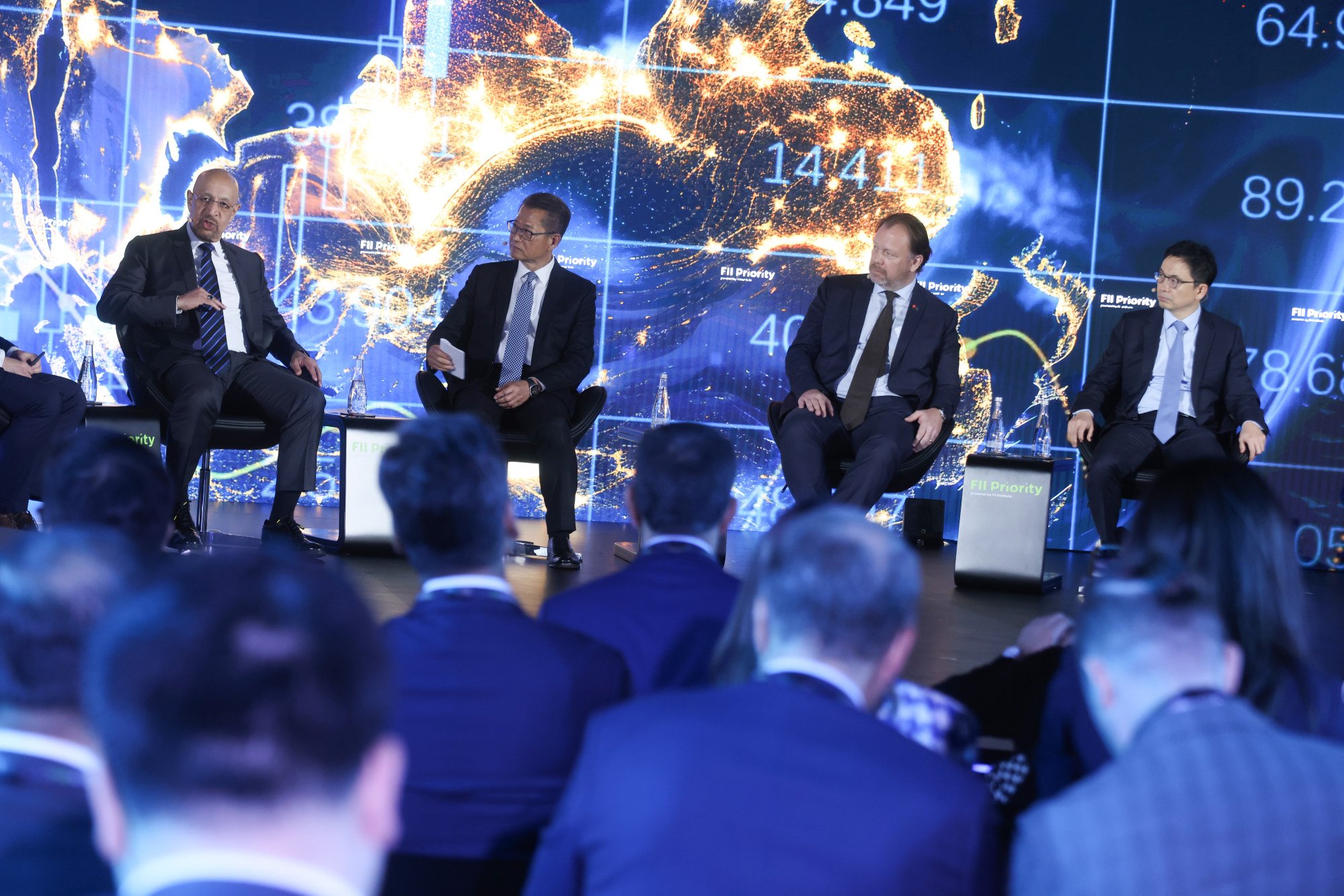
‘Economic centre of gravity is moving towards Asia,’ business leaders hear
-
Shifting geopolitics and Asia’s ascent are driving regional economies to collaborate more, business leaders hear
-
‘Asia will represent a bigger proportion of the world as we go forward,’ HXEX boss Aguzin tells forum
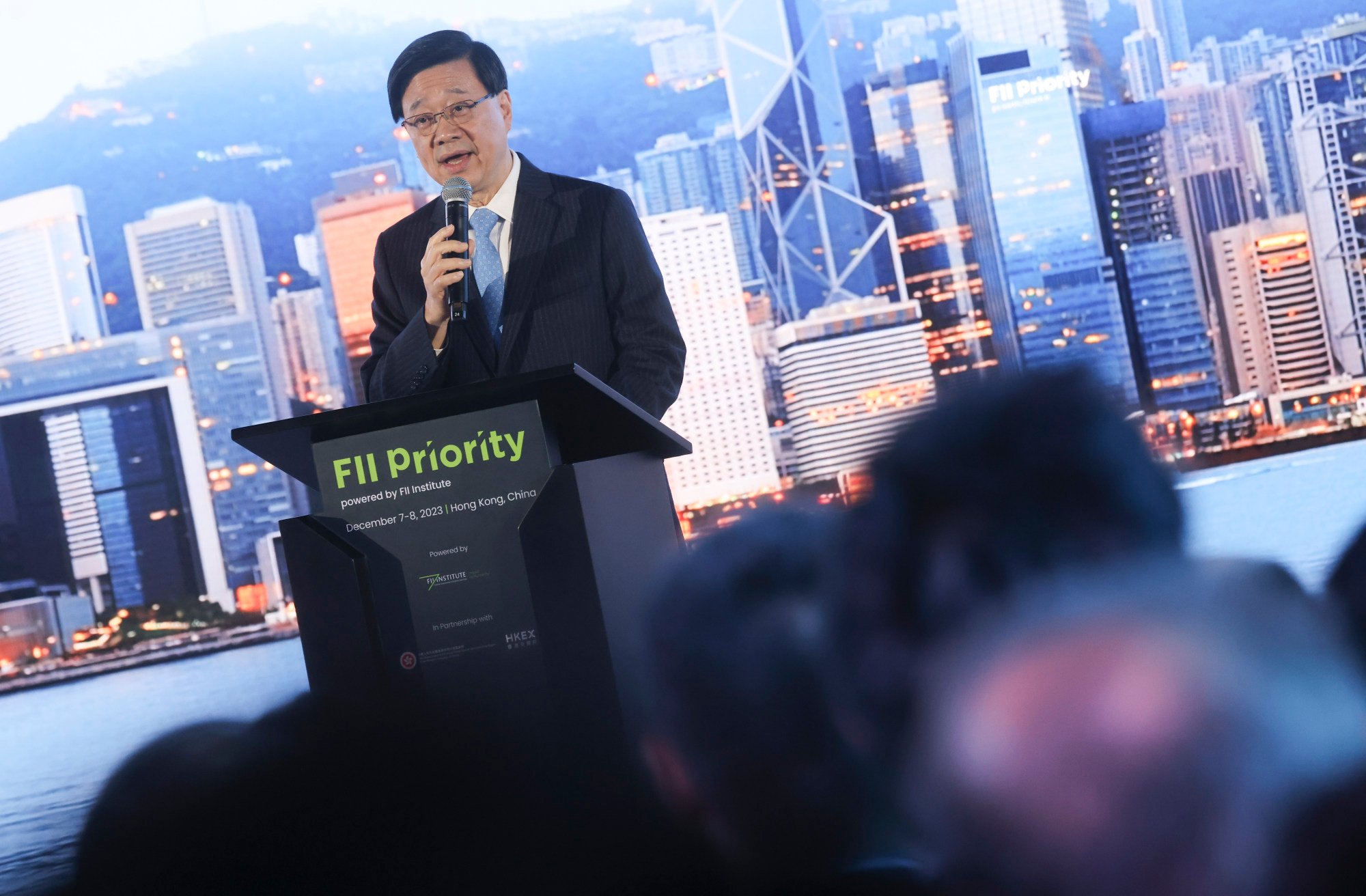
Hong Kong’s governing principle ‘enables city to play key role in shaping trends’
-
Number of fintech companies in city has risen by 25 per cent in just a year, city leader John Lee says in keynote speech at FII Priority Hong Kong conference
-
Lee touts city’s deepening ties with Saudi Arabia, says both economies are negotiating investment promotion and protection agreement
Hong Kong’s “one country, two systems” governing principle has enabled it to play a bigger role than its size would suggest on the global stage in finance, innovation and building a sustainable future, the city’s leader has said, stressing the number of fintech companies setting up locally has risen by 25 per cent in just a year.
Global Impact is a weekly curated newsletter featuring a news topic originating in China with a significant macro impact for our newsreaders around the world.





